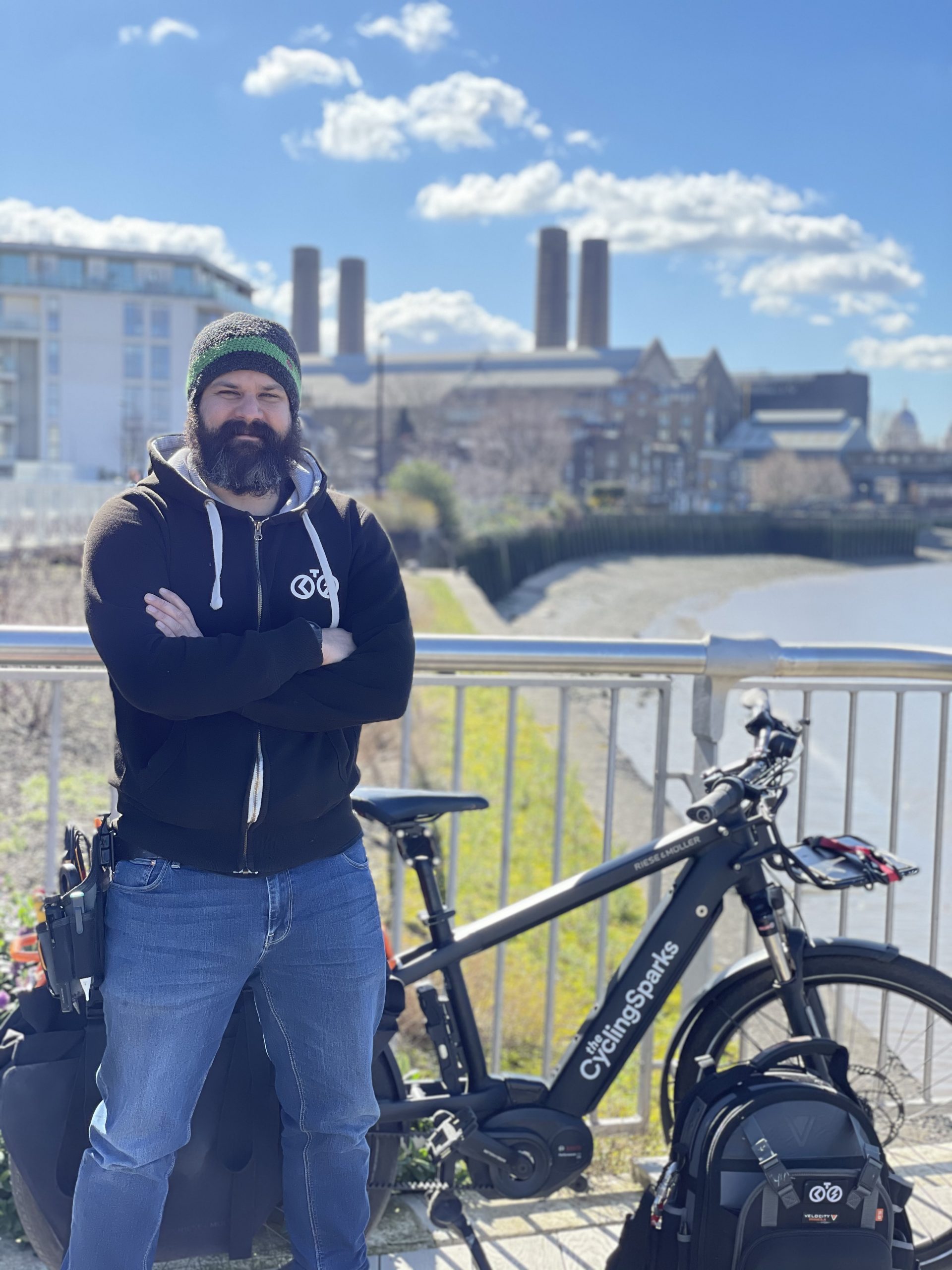After working in a mixture of construction, commercial and facilities management companies for a number of years, I had already switched from using a van and public transport to cycling to commute to different sites in London.
In early 2017, I made the decision to venture out on my own. I wanted to continue riding my bike as my main mode of transport because it was far simpler and significantly less polluting than driving a van or taking public transport, so I founded The Cycling Sparks in August 2017 in a bid to change the way things were done and to push the boundaries.
I started out on a regular pushbike with a backpack full of tools and materials, working locally in South East London for mostly domestic clients. Since then, I’ve expanded and I now work with a diverse range of clients and businesses.
